Buy a cheap 3.7V internal battery resistance tester. It features data transmission, a rechargeable 3.7V lithium battery, manual or automatic measurement, and can store up to 5000 data points. Additionally, it includes battery internal resistance measurement, an alarm prompt setting function, battery voltage measurement, and temperature measurement capabilities.
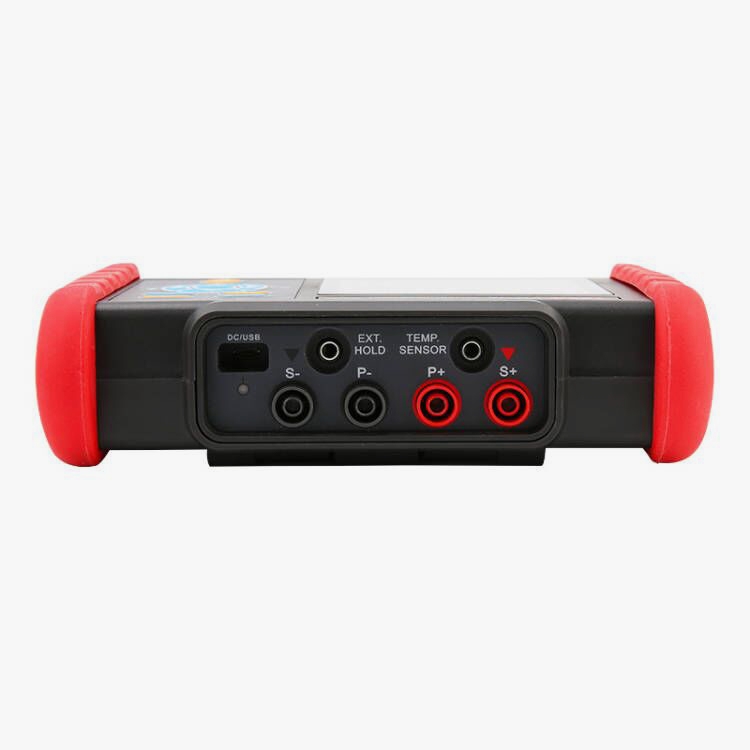
Internal battery resistance tester function
-
PC software: read real-time internal battery resistance tester values, read historical internal battery resistance tester records, and synchronize computer time to the internal battery resistance tester, etc.
-
5000 data storage: internal battery resistance tester can be set to keep, storage mode, memory selection, a total of ABCDEFGHIJ ten storage options, such as the current memory has been stored full of 500 sets of data, storage data prompted memory is full (FULL symbol), you need to manually set up other memories or delete the current memory data before storing the new measurement data.
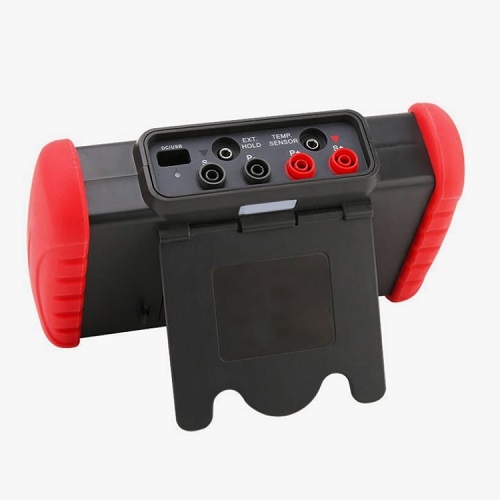
Internal battery resistance tester function
-
Voltage measurement: An internal battery resistance tester can also be used as a DC voltmeter, just connect the two red and black interfaces in the middle to measure. DC voltage, note that does not measure AC voltage, as well as DC voltage not exceeding 70V.
-
Temperature measurement: insert the temperature sensor into the TEMP.SEN-SOR interface, the display interface can show the current ambient temperature, but not connected to the sensor is not displayed.
Applications
SISCO 3.7V internal battery resistance tester. It has a wide range of applications, including testing the internal resistance of batteries, inspecting battery modules, measuring in battery R&D, inspecting high-voltage battery packs, and conducting high-speed mass production line inspections of lithium batteries, lead-acid batteries, button batteries, and more.

Lead-acid Battery Check

Internal Resistance Test
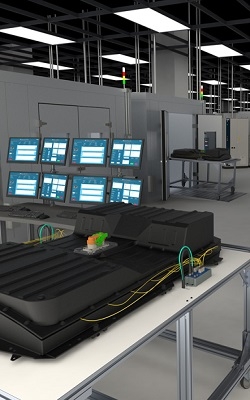
R&D Measurement
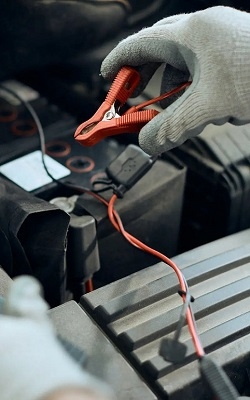
Hybrid Vehicles Test
| Model | SISCO-BRT-UT677A |
| Power supply | DC 3.7V lithium battery |
| Precision guaranteed temperature and humidity | 23°C±5°C, below 75%rh |
| Resistance resolution | 1 uΩ |
| Voltage resolution | 1 mV |
| Temperature resolution | 0.1℃ |
| Measuring range |
Internal resistance measurement: 0.000mQ~3.100Q (4 ranges) Voltage measurement: 0.000V~71.00V (2 ranges) Temperature measurement: -10.0° C ~ 60.0° C (single range) |
| Maximum input voltage | DC 70V (between +measurement terminal and -measurement terminal), no AC input. |
| Measurement method |
Internal resistance measurement: 1KHz AC 4-terminal test method, open terminal voltage 3Vmax Measuring current: 2.0mA~200mA (different measuring current for different ranges) Temperature measurement: NTC temperature sensor (10KQ at 26C) A/D conversion method: successive approximation type Display update frequency: 5 times /second |
| Response time | 200ms |
| Measurement time | Approx 2 seconds |
| LCD size | 70.1mm*52.6mm/3.5 inch (320*240 resolution 16-bit true colour screen) |
| Instrument size | 190mm*121mm*51mm |
| USB connection | With a USB interface, stored data can be uploaded to the computer, save,d and print |
| Bluetooth connection | Yes |
| Hold and store function | With manual hold and storage, automatic hold and storage |
| Measurement judgment function | PASS, WARNING, and FAIL judgment thresholds can be preset. |
| Battery voltage | Battery level 5 grid display, battery voltage is low to ensure timely charging |
| Automatic switch-off | Power on without operation, about 15 minutes after the automatic shutdown (can be turned off in the settings) |
| Power consumption | 300mA MIN/500mA MAX |
| Weight | 480g(with battery) |
| Working temperature and humidity | -10C~40℃℃; 80%RH or less |
| Storage temperature and humidity | -20°C~60°C; 70%RH or less |
| Insulation resistance | 20MΩ or more (500V between circuit and case) |
| Withstanding voltage | AC 3700VIRMS (between circuit and case) |
| External magnetic field | <40A/m |
| External electric field | <1V/m |
| Suitable for safety regulations | IEC 61010 |
Package List
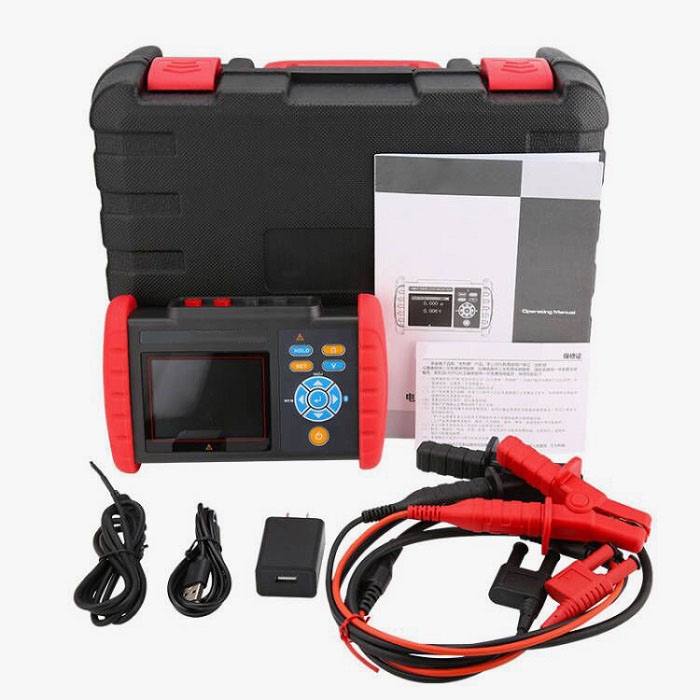
Q1: What is a battery tester?
A1: A battery tester is a device used to measure the remaining charge, voltage, and overall health of a battery. It helps determine whether a battery is still functional or needs to be recharged or replaced, ensuring optimal performance for various electronic devices.
Q2: What is the difference between a battery tester and a multimeter?
A2: A battery tester specifically measures the charge, voltage, and health of a battery, providing a quick assessment of its condition. A multimeter, on the other hand, is a versatile tool that measures various electrical parameters such as voltage, current, and resistance across different components, not limited to just batteries.
Q3: What is the purpose of battery testing?
A3: The purpose of battery testing is to evaluate the condition, performance, and remaining life of a battery. It helps determine if a battery is still functional, needs recharging, or requires replacement. Regular battery testing ensures optimal performance, prevents unexpected failures, and enhances the safety and reliability of devices that rely on batteries.
Tips: What is an internal battery resistance tester?
An internal battery resistance tester is a device used to measure the internal resistance of a battery. Internal resistance is a critical parameter that indicates the battery's ability to conduct current. High internal resistance can lead to poor battery performance, reduced capacity, and difficulty in delivering sufficient power to the vehicle's electrical systems.
This tester works by applying a small load to the battery and measuring the voltage drop, which is then used to calculate the internal resistance. The lower the internal resistance, the better the battery's condition. High resistance typically indicates issues such as aging, sulfation, or other internal problems that could lead to battery failure.
Using an internal battery resistance tester is advantageous because it provides a quick and accurate assessment of the battery's health without needing to fully discharge it. This non-invasive testing method is commonly used by automotive technicians and battery manufacturers to ensure batteries are in good working condition.
Thank you for buying industrial test and measurement equipment on SISCO.com, all products sold by SISCO and the partner cover a 12 months warranty, effective from the date of receiving the products.
What is covered?
SISCO is responsible for providing free spare parts, and free technical support to assist the customer to repair the defective products until the problem is solved.
What is not covered?
- Product purchased from anyone other than a SISCO store or a SISCO authorized reseller.
- Expendable parts.
- Routine cleaning or normal cosmetic and mechanical wear.
- Damage from misuse, abuse or neglect.
- Damage from use of parts other than SISCO approved.
- Damage from use outside the product’s usage or storage parameters.
- Damage from use of parts not sold by SISCO.
- Damage from modification or incorporation into other products.
- Damage from repair or replacement of warranted parts by a service provider other than a SISCO authorized service provider.
- Damage caused by the application environment not meeting the product usage requirements and the failure to perform preventive maintenance.

